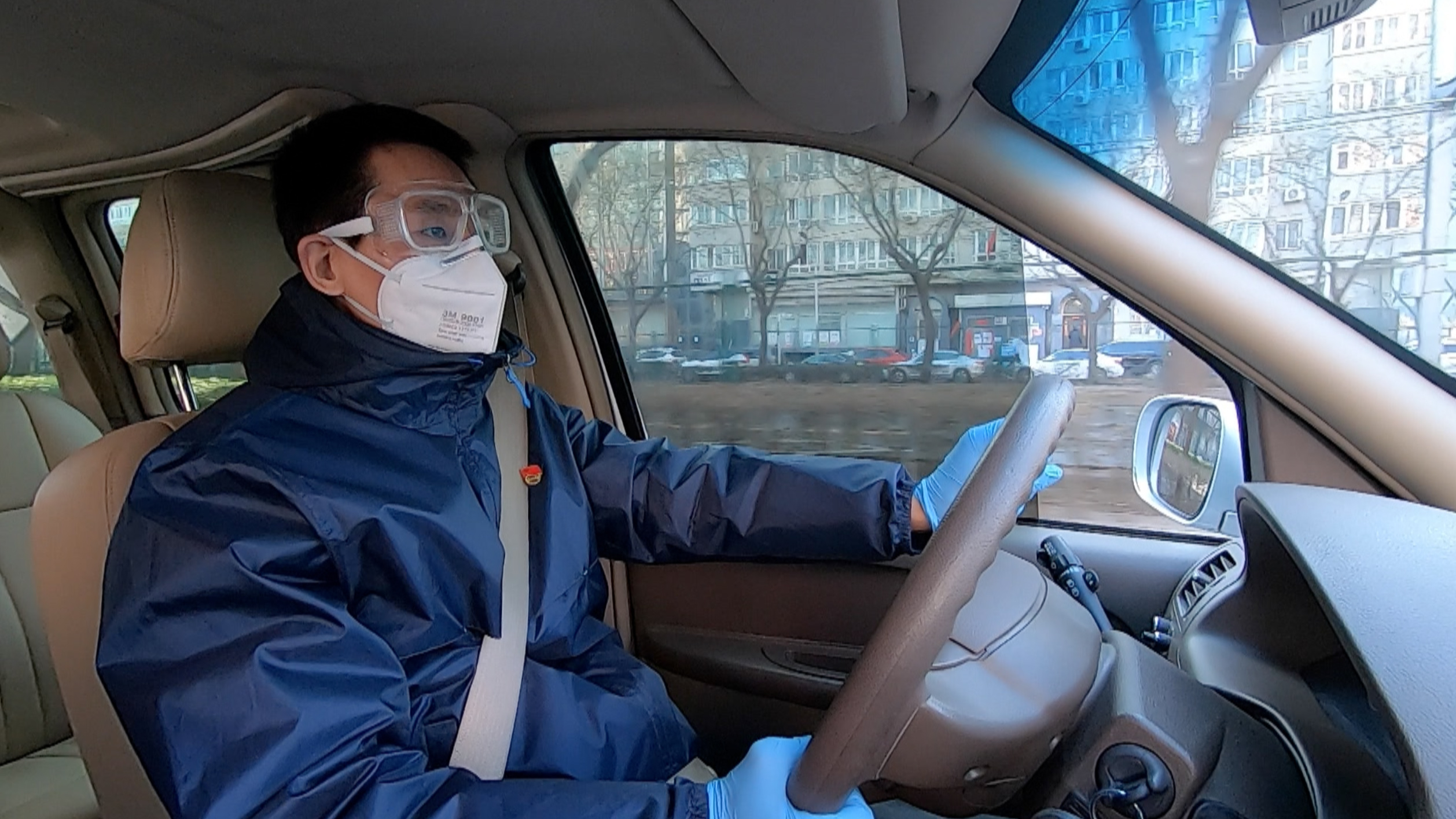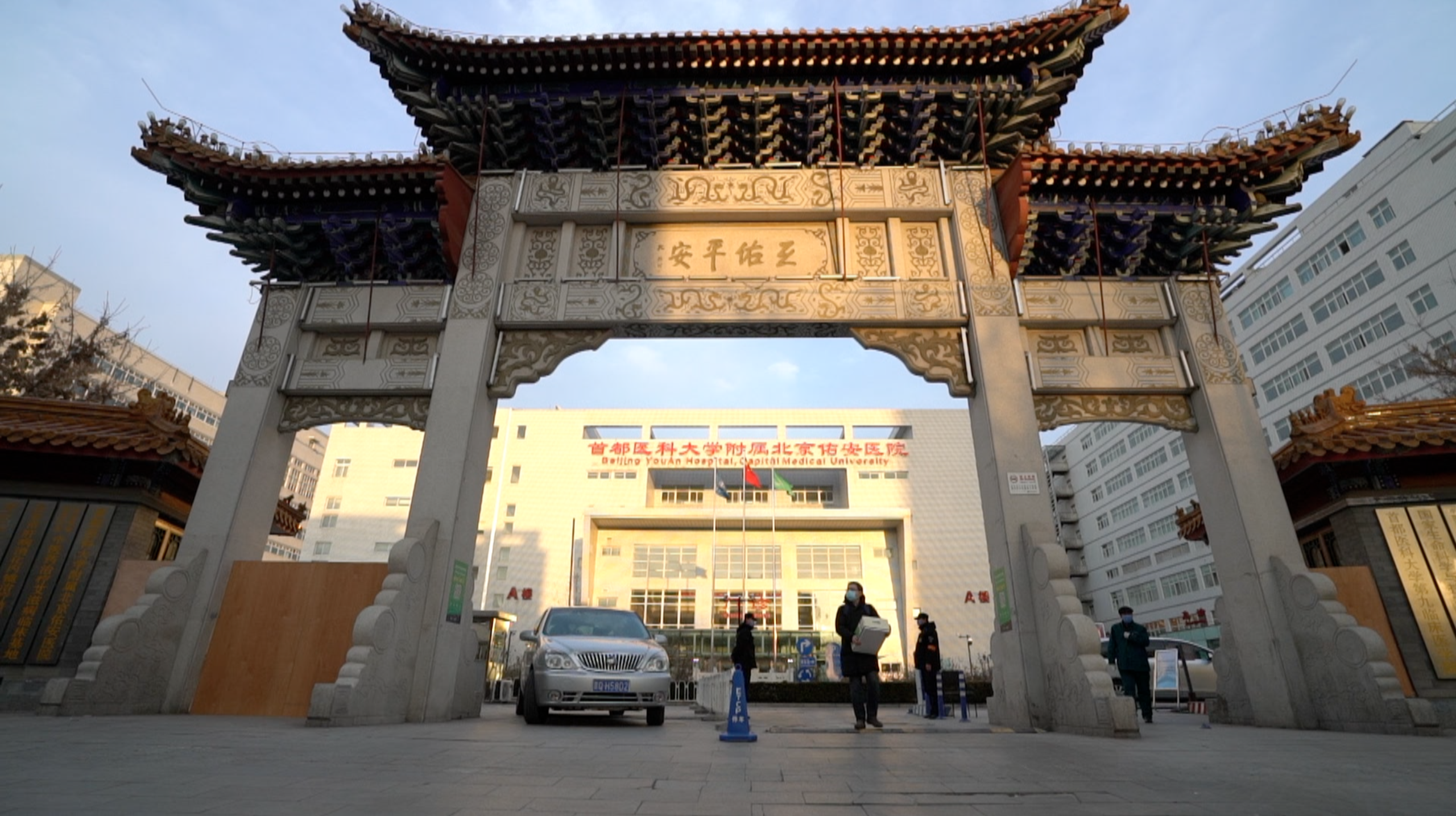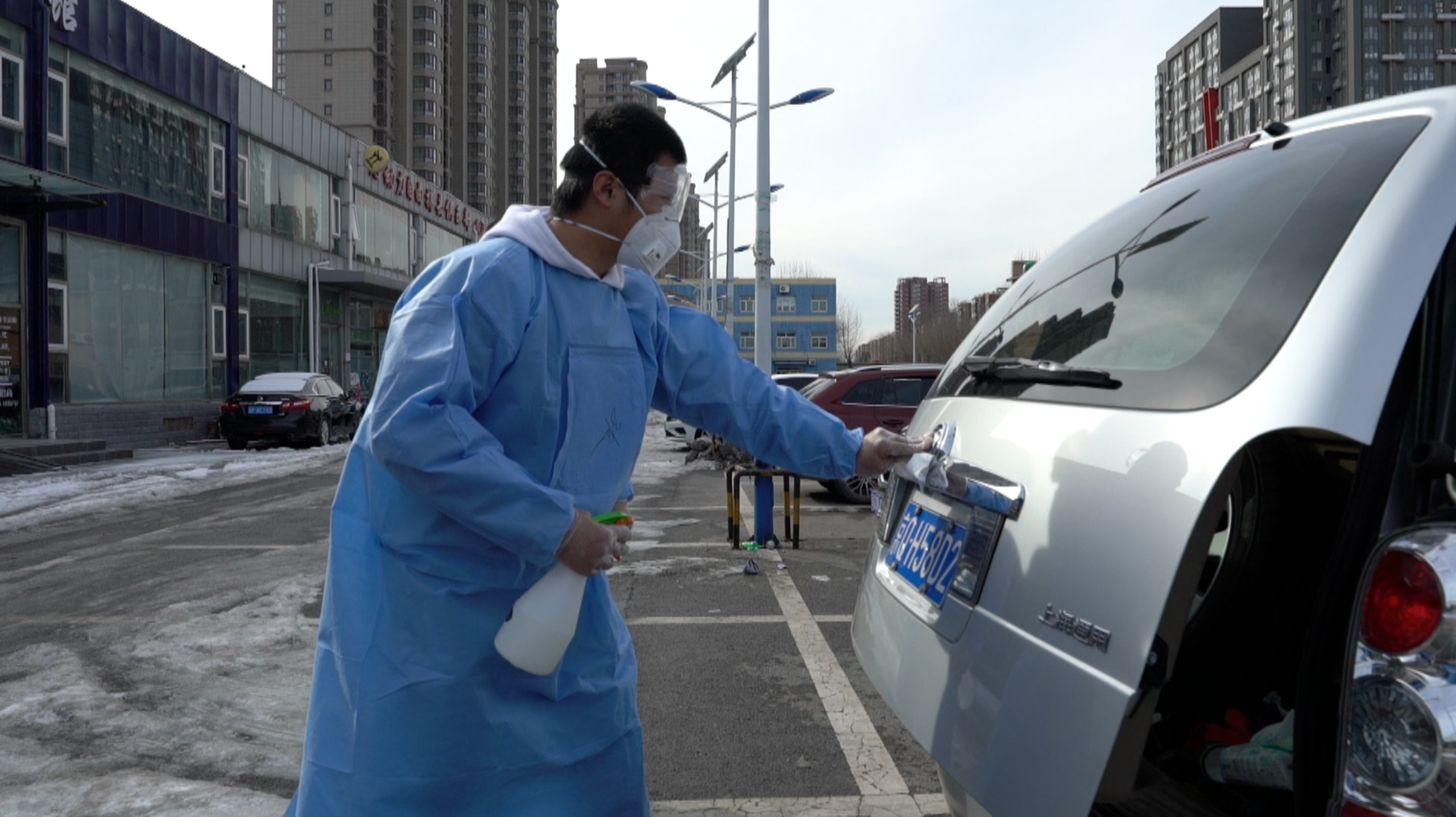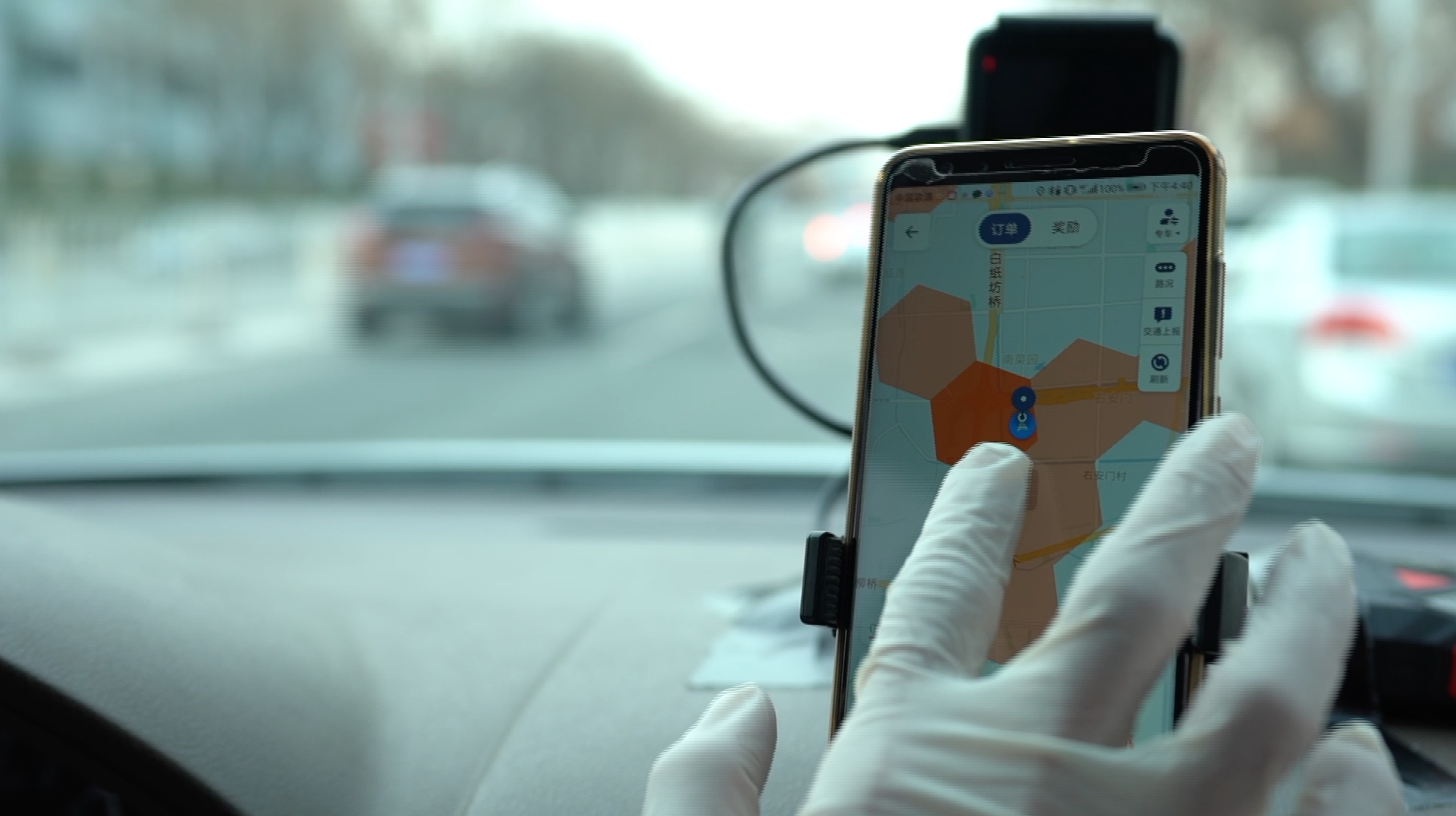03:36

With many citizens staying in, taxis and ride-hailing services have witnessed a business dwindle in many Chinese cities. But some drivers are using this as an opportunity to help the nationwide fight against the epidemic. They are voluntarily driving medical staff from their homes to the hospitals treating COVID-19 patients.
For Beijing car-hailing driver Liu Wei, his routine of late includes putting on protective gear before setting off for work.
For almost three weeks now, he and his colleagues on Didi, a ride-hailing service company, have been helping medical workers at a time when only a few taxi drivers are working. They get support from the company and work on day or night shift for at least 10 hours.
Liu said that recently, he leaves home at about 7 am and gets back home after 6 pm.
"Now, we're going to You'an and Ditan, the two designated hospitals in Beijing. The staff there has been working really hard. Some have to work consecutively for two to three days. They are exhausted when they leave work," Liu said.

A volunteer driver's car leaving You'an Hospital with a medical worker off duty in Beijing, February 18, 2020. Xu Haiquan/ CGTN
A volunteer driver's car leaving You'an Hospital with a medical worker off duty in Beijing, February 18, 2020. Xu Haiquan/ CGTN
One of the medical workers there, a doctor, impressed him the most. "She says that before our Didi volunteers came along, she had to bike for 17 kilometers each day to get to You'an hospital. That's really hard," he said, noting that she lives in Erlizhuang Community, north of the Fourth Ring Road of the city.
The fear of the virus made disinfecting the cars a mandatory step. Every day, Liu and other volunteers go to different supply stations in Beijing to get assistance.

Disinfection, either by a supply station worker or the drivers themselves, is mandatory in Beijing during the COVID-19 epidemic. Xu Haiquan/ CGTN
Disinfection, either by a supply station worker or the drivers themselves, is mandatory in Beijing during the COVID-19 epidemic. Xu Haiquan/ CGTN
In one station, Zhang Xiaoyan, the station manager, said that they are more than willing to help the drivers. "First and foremost, we must ensure the safety of our drivers and passengers. This is the priority due to the severity of the epidemic," she said.
Now, disinfection is a requirement after each passenger ride. And through an online system, Liu and his fellow drivers pick up orders solely from medical staff at hospitals like You'an and Ditan.
"Each one of our volunteers has approximately ten orders a day. But sometimes, there could be more, like on rainy and snowy days," Liu Wei said.

Volunteer drivers use ride-hailing service system destined only to medical workers in key Beijing hospitals treating COVID-19 patients. Xu Haiquan/ CGTN
Volunteer drivers use ride-hailing service system destined only to medical workers in key Beijing hospitals treating COVID-19 patients. Xu Haiquan/ CGTN
Their service has proved invaluable, and with transporting staff still in emergency mode ever since COVID-19 broke out in January, this also helps dispel health concerns over public transportation.
"This is a heartwarming gesture. There's someone to accompany us home late at night and bring us to work before dawn. This is such a big encouragement for us," said a medical worker from You'an Hospital.
Liu and other volunteers have been driving more than 4,000 medical staff to and from their homes. Even though it requires long working hours and doesn't pay well, it's crucial in the battle against the epidemic as a show of community spirit and support.